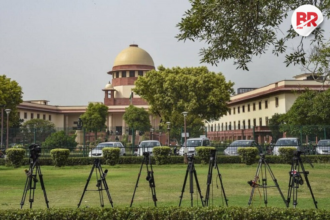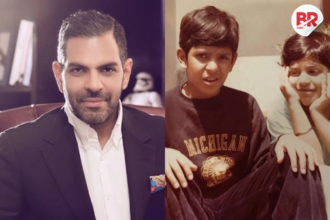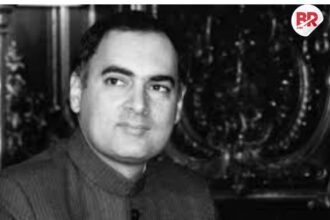
Justice Bhushan Ramkrishna Gavai, India’s 52nd Chief Justice and its first Buddhist to hold the position, has played an important role in shaping India’s legal system. During his career, he has written about 300 important rulings, including on major topics like constitutional law, freedom, and justice. He is known for standing against the government’s “bulldozer justice,” where harsh actions were taken without proper legal procedures.
Justice Gavai, the second Dalit to become Chief Justice after K.G. Balakrishnan, was sworn in on Wednesday by President Droupadi Murmu. His term will last until November 23, 2025.

Hailing from a small village in Maharashtra’s Amravati district, Justice Gavai came from humble beginnings. Born on November 24, 1960, his father, R.S. Gavai, was a politician who founded the Republican Party of India.
Read More: Ajay Kumar, Ex-Defence Secretary, Now Leads UPSC as Chairman
As Chief Justice, Gavai faces important tasks like addressing the huge backlog of cases in courts, including more than 81,000 pending cases in the Supreme Court, and dealing with vacancies in courts.
One of the key issues he will handle is the challenge to the Waqf (Amendment) Act, 2025, which has sparked a lot of debate.
Before becoming Chief Justice, Gavai shared with the media that he believes the Constitution is supreme and made it clear that he would not accept any post-retirement positions.
Justice Gavai became a judge of the Supreme Court on May 24, 2019, and was part of several landmark cases, including decisions on Article 370 (which revoked Jammu and Kashmir’s special status), electoral bonds (which deal with political funding), and the demonetisation of Rs 1,000 and Rs 500 notes.
One of the important cases he worked on involved staying a controversial judgment by the Allahabad High Court, which had made insensitive comments regarding sexual violence. Gavai’s bench said such views were inhumane and insensitive.
During his time in the Supreme Court, Gavai was part of over 700 cases, dealing with a wide range of topics like constitutional law, criminal law, civil disputes, commercial law, arbitration, and environmental issues. He authored around 300 judgments, many of which protect citizens’ rights and uphold the rule of law.
In December 2023, Gavai was part of a bench that unanimously upheld the government’s decision to remove Article 370, ending Jammu and Kashmir’s special status. He also worked on striking down the controversial electoral bonds scheme, which allowed political parties to receive donations secretly.
Gavai also supported the government’s 2016 demonetisation decision in a 4:1 verdict. In another important case, a bench led by Gavai ruled that states could create sub-categories for reservation within Scheduled Castes, allowing for more targeted support for those who are more backward in social and educational terms.
He also worked on cases concerning free speech, ruling in January 2023 that public officials cannot have additional restrictions on their right to freedom of speech, as the Constitution already provides sufficient grounds for limiting this right when necessary.
Justice Gavai is known for a landmark ruling on demolitions, stating that no property should be demolished without a notice being given and at least 15 days for the affected people to respond.
He has also been involved in environmental matters, passing rulings to protect forests, wildlife, and trees.
In addition to his judicial work, Justice Gavai has given lectures on constitutional and environmental issues at prestigious universities like Columbia University and Harvard University.
Before becoming a judge, Gavai worked in various legal roles, including as a lawyer and public prosecutor. He was first appointed as an additional judge of the Bombay High Court in November 2003, and later became a permanent judge in 2005.
In April 2023, his predecessor, Justice Sanjiv Khanna, recommended him as the next Chief Justice, and in May 2023, the law ministry officially appointed him as India’s 52nd Chief Justice.












